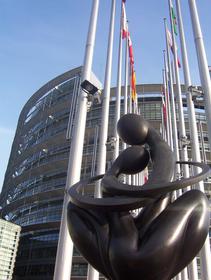

By joining the EU members lose sovereignty and influence over their own laws and policies. As a member of the EU, a country can no longer decide on various domestic and international policies on its own. These powers (competences) are transferred to the supra-national EU level. But, in return they gain influence within the EU. This influence is gained in the decision-making councils of the European Union.
Advocates of EU integration say that Member States “pool sovereignty”. This gives them greater influence since other Member States, particularly larger ones, have to take account of the views of the smaller states.
In the EU Council, a country has a seat and a platform to give its views and decide EU policy by voting. Votes are roughly allocated according to the size of a state’s population, but with smaller countries having proportionally more votes.
The electorate of the EU countries is represented directly in the EU Parliament. While the EU Parliament can amend most laws proposed by the Council of Ministers, it is different from national parliaments since it cannot initiate any law. Furthermore, voters lose power every time decisions are moved to Brussels because decisions are then transferred from the electorate and elected representatives of the nation states to supra-national civil servants and ministers in Brussels.
The future
Two major different solutions to this democratic deficit were discussed in the Convention on the Future of Europe.Links
See also Democratic Deficit.